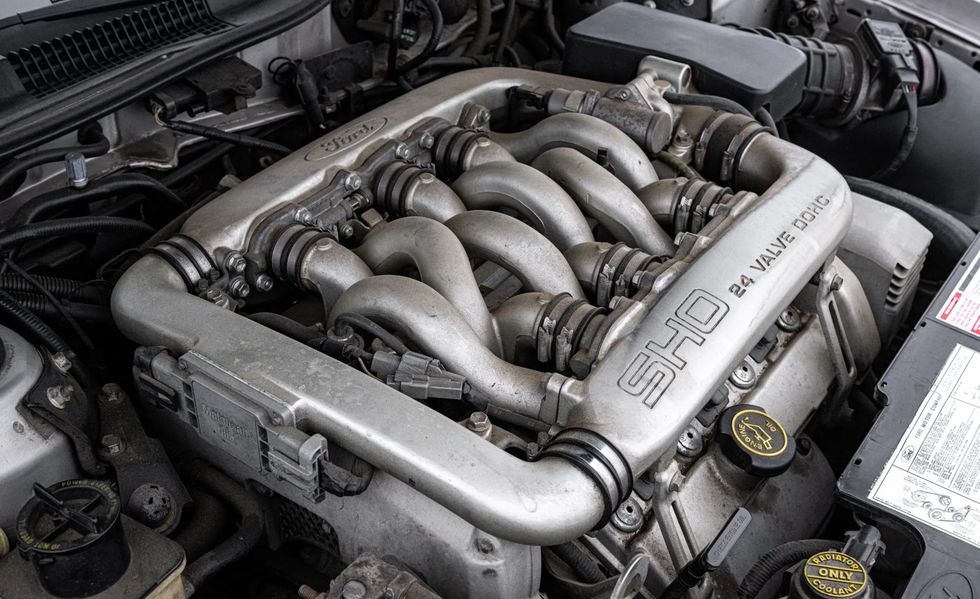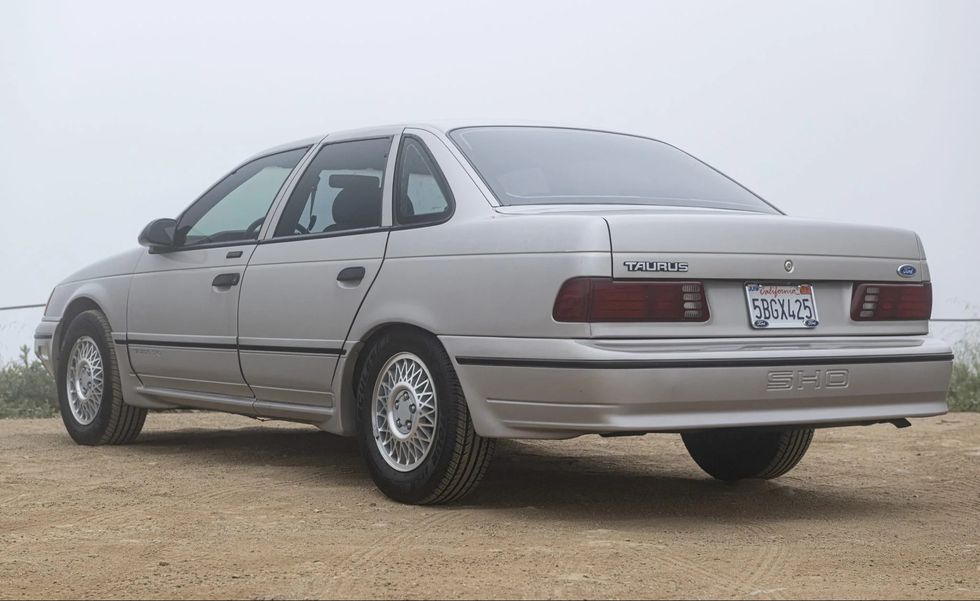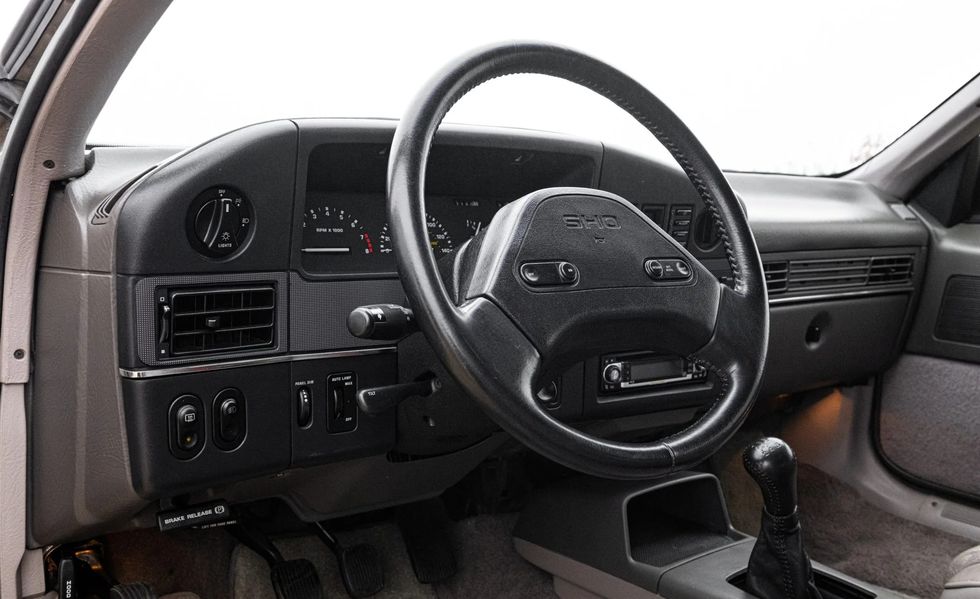1989 Ford Taurus SHO Is Our Bring a Trailer Auction Pick of the Day

• The Ford Taurus SHO turned America’s most popular sedan into a legitimate sporting machine.
• A high-strung Yamaha V-6 is paired with a five-speed manual.
• This first-year SHO has seen just two owners and 37,000 miles.
Up for auction on Bring A Trailer—which, like Car and Driver, is part of the Hearst Autos Group—is an example of a groundbreaking performance sedan that brought power to the people. “Ford Taurus SHO Shocks the World,” we said, with only minor hyperbole, after testing the new sports sedan upon its debut. Okay, so the Taurus SHO wasn’t quite a BMW M5, but by the standards of the day it filled the same brief—and for less than half the price. When this 1989 example hit the streets, we called it a “breakthrough car,” one that could nip at the heels of Camaros and Corvettes, while retaining its family-friendly brief with four doors and a commodious trunk.
Bring a Trailer
Pop the hood and take a good look at one of the best-looking engines ever made, a Yamaha V-6 with its basket-of-snakes cylinder head. Displacing the same 3.0 liters as the optional Vulcan V-6 of the regular Taurus, the SHO had 80 more horses under its belt, for a total of 220.

Bring a Trailer
Yamaha had been tasked with developing the V-6 for a potential mid-engined sports car called the GN34 (think Ford’s never-happened NSX). When that project fizzled out, Ford’s Special Vehicle Operations team pleaded for the V-6 to find a new home in a stiffened-up Taurus. Since the Taurus was a mainstream hit already, why not? Lucky us, because it was a heck of a motor.
In a 1988 review of the car, Csaba Csere wrote:
“The Shogun engine is rev-limited to 7300 rpm—not to protect the internal components, but to keep the accessory drive system from flying apart. (The engine itself is safely able to turn more than 8500 rpm.) The engine’s durability comes from its forged-steel crankshaft and connecting rods; a high-strength cast-iron cylinder block with reinforced main-bearing supports and deck faces; and a cooling system that offers full, 360-degree water jackets around the cylinders, extra-large cooling passages, and an oil-water heat exchanger. Yamaha didn’t skimp when it designed this engine.”

Bring a Trailer
The exotic engine also sent 200 pound-feet of torque to the front wheels, dispatched exclusively via a Mazda-sourced five-speed manual transaxle. (An automatic wouldn’t be offered until the next-gen, ’93 SHO.) The SHO didn’t look much different from the hundreds of thousands of garden-variety Taurus sedans already plying America’s streets (370,000 of which were sold in 1989). And yet, it was quicker than any sedan at twice the price. It also could keep pace with a V-8 Mustang. Not just keep pace, but actually outrun it.
From that same period road test: “Compared with the potent Ford Mustang V-8, the SHO is a mere 0.3 second slower in the quarter-mile. And all of that lost time occurs at the start; once rolling, the SHO keeps pace with the Mustang and finishes the run at the same 95-mph trap speed. Above 100 mph, the aerodynamically superior SHO steadily pulls away from the Mustang. The Taurus SHO is one fast five-passenger family sedan.”

Bring a Trailer
This example has relatively low miles at 37K and has had just two owners. It has some wear that’s typical of the interior quality of a late-1980s Ford product, and a few other blemishes. Though the silver paint hides these well.
Even today, most might not know the SHO from any other Taurus. But pop the hood at your local Radwood show or cars and coffee event, and show off Yamaha’s fine work. It will be clear this is no Hertz-spec Taurus.
The auction runs through May 22.
Car and driverCar and driver Lettermark logo
Contributing Editor
Brendan McAleer is a freelance writer and photographer based in North Vancouver, B.C., Canada. He grew up splitting his knuckles on British automobiles, came of age in the golden era of Japanese sport-compact performance, and began writing about cars and people in 2008. His particular interest is the intersection between humanity and machinery, whether it is the racing career of Walter Cronkite or Japanese animator Hayao Miyazaki’s half-century obsession with the Citroën 2CV. He has taught both of his young daughters how to shift a manual transmission and is grateful for the excuse they provide to be perpetually buying Hot Wheels.



